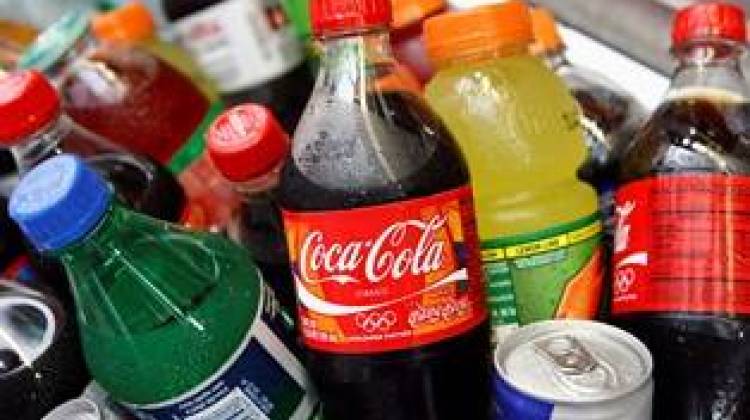Harvard researchers say taxing sugary drinks could reduce rates of diabetes, avert vast sums in health costs and raise $41 million for community needs.
They projected the results of a 1-cent-per-ounce excise tax in 15 major cities, including Indianapolis.
“This would have effects on health care costs. Individuals with obesity have much higher health care costs. We estimate over the next decade the city of Indianapolis would be saving about 43 million dollars in health care costs because of this,” says lead researcher Steve Gortmaker.
Gortmaker says it’s often not appreciated how much people actually consume.
“We calculated for example that people in Indianapolis consume about 32 million gallons of sugary beverages a year and that means people in Indianapolis are spending about $320 million a year on sugary beverages, which is really harmful,” he says.
But how great an impact can a city-by-city approach have on the nation’s health? Healthy Food America asked researchers at Harvard University’s T.H. Chan School of Public Health to use their evidence-based, peer-reviewed computer model to evaluate the impact should 15 more of the nation’s largest cities (with legal authority to do so) adopt a sugary drinks tax of one cent per ounce. The researchers – who operate independently of HFA – also projected benefits for the six jurisdictions that passed taxes this year.
“By following the example of the seven that have already acted,” HFA executive director, Jim Krieger says, “cities have a golden opportunity to help their people avoid premature death and illness and cut health costs while raising revenue to make residents’ lives better in other ways.”
The 15 cities chosen for analysis were Baltimore, Charlotte, Columbus, Denver, Detroit, Indianapolis, Jacksonville, Las Vegas, Los Angeles, Louisville, Oklahoma City, Phoenix, San Diego, San Jose and Seattle. The researchers project that the tax of one cent per ounce would raise prices on sugary drinks by 16.3 percent, leading many consumers to shift to water or other, less harmful drinks, so that soda consumption drops by nearly 20 percent. Berkeley, California, where a tax has been in effect since early 2015, saw a 21 percent reduction among low-income communities.
As a result of that shift, and adding the projected health gains for the six places with existing taxes to those of the 15 cities above, researchers say:
- 23.5 million people would benefit;
- Health care savings of more than $1.2 billion over 10 years;
- Nearly $1 billion a year in revenue to help prevent disease and improve life chances for people of all backgrounds;
- 3,683 premature deaths averted;
- The rate of new cases of diabetes would drop an average 6 percent after the tax reaches full effect;
- 173,220 fewer cases of obesity, and longer lives, unburdened by preventable disease, for tens of thousands of Americans.
Philadelphia, Boulder, San Francisco, Oakland, Albany, California and Cook County Illinois, adopted taxes on sugary drink this year.
Retailers have said soda taxes could hurt business without improving health.
 DONATE
DONATE








 Support WFYI. We can't do it without you.
Support WFYI. We can't do it without you.